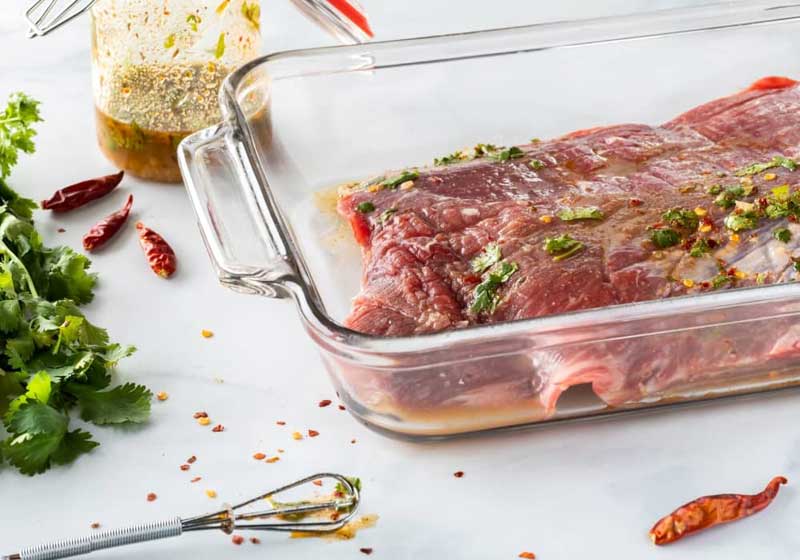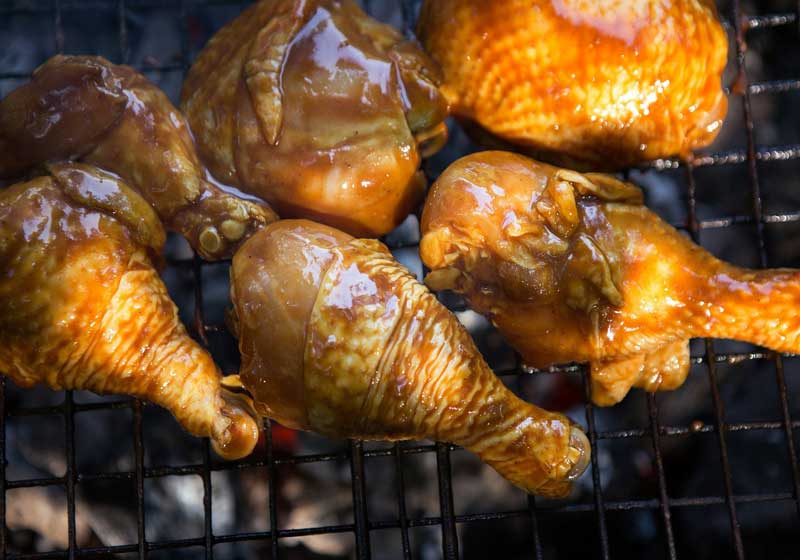There is always debate when barbeque season rolls around as to which is better – a marinade, rub or baste to achieve that perfect sear, flavour and texture.
Let’s take a look at the differences and why each works in its own way to enhance your next grilling session:

Dry rubs:
A dry rub combines spices and herbs that you generously sprinkle on the meat, giving delicious, sometimes quite complex, deep flavours. A rub works on the meat’s outer layer, often producing a heavenly crust of flavour on the finished product.
After applying the dry rub, gently massage the meat. You can do this a few hours before cooking or apply the rub and refrigerate overnight (by doing this you actually brine the meat which gives the meat even more flavour). You have these options because the rub will not penetrate far into the meat itself.

Photo credit: Big Dog Spices.
A wet rub is a dry rub with a small amount of liquid such as wine, honey, juice, or beer added that forms a paste which you then massage onto the meat. Just as with the dry rub, the wet rub does not deeply permeate the outer layers of the meat. You can apply the wet rub hours before grill time or leave it on overnight. A wet rub is particularly good on chicken - gently massage the chicken with the wet rub a few hours before cooking.
Marinades:
A marinade is a mixture of liquids, spices, herbs and other seasonings combined with oil. A marinade can be used to tenderise the meat and add flavour to it. Protein will absorb more flavour if it’s soaked in the marinade overnight.
Think lamb marinated with garlic, oregano, lemon juice and olive oil overnight and then grilled over charcoal and served with fresh flatbread and your favourite sides/toppings.

Photo credit: Big Dog Spices.
While a dry rub adds flavour and crust to your protein, a marinade adds taste and tenderness to the meat. This happens because of the liquid’s ability to move within the cell walls of the protein and break them down while delivering taste to the meat.
Bastes:
A basting sauce, glaze or marinade is brushed onto food as it cooks adds its own special flavour.
To prevent the possible spread of bacteria from raw meat, don’t use the sauce that meat or poultry has been marinating in as a basting mixture. Instead, make extra marinade and set it aside to be used specifically for basting.
Any remaining basting sauce should be discarded; it should not be used as a dipping sauce.
Some basting mixtures can be brushed onto food as it grills. Some, however, have a high sugar content and may burn easily. These should only be brushed on during the last 10-15 minutes of grilling.

Barbeque tips:
To avoid the marinade sticking to the grill, always remove excess marinade prior to cooking – it has already done its job and won’t add further flavour.
Never reuse marinade! You should discard the extra to avoid bacterial contamination. If you want to use some of your marinade to baste or as a finishing or dipping sauce, reserve some of the marinade before you add the meat.








